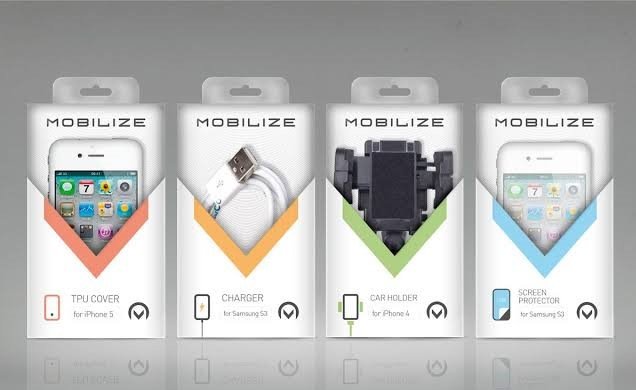Starting a small business can be an exciting step towards entrepreneurialism, yet there are numerous considerations when embarking on this path.
As part of your startup plan, it is vital that you save enough cash to launch your business successfully. Furthermore, creating a marketing plan to reach out to specific demographics and psychographics of target consumers should also be top of mind.
Contents
Find your target market
Finding your target market can seem like a daunting challenge when starting out in business, but starting by talking to existing customers can be the key to unlocking success. Start by talking to those who already invested their hard-earned cash with you: They provide invaluable information about why they shop with you, what they like about it, and their goals for doing so.
Look at your sales data from POS and CRM systems to gain a clear understanding of which products and services are selling well in your area, which gives an indication of what the target market wants and allows you to tailor marketing efforts towards satisfying that demand and bringing in more business.
When trying to identify your target market, it’s essential to keep in mind that finding an optimal focus requires treading a fine line between having too narrow a focus and going too wide.
Aiming too broadly will lead to wasted efforts and may prevent your business from receiving its due consideration from customers; yet too narrow of a focus may impede business expansion efforts altogether. You can visit https://magneticmarketing.com/blog/why-your-secondary-target-market-matters-more-than-you-think for more information. The more research you conduct at this stage in your business, the better prepared you will be.
Once you have identified your target market, the next step in starting up a business should be finding additional funding. This will enable you to expand operations and reach more customers as well as scale up products or services — such as by opening physical locations or hiring employees.

Get to know your customers
Before starting your small business, it’s crucial that you conduct sufficient research into who your ideal customers are. That way, you can create a strategy to get in front of these potential clients; those who will return again, recommend your brand to friends, and praise you on social media – the people that will drive its growth.
Getting to know your customers is an integral component of starting up a small business. By understanding their wants, needs, and buying patterns you will be better equipped to target advertising and marketing efforts and offer exceptional customer service resulting in long-term customer loyalty and increased sales.
Researching your target market means first understanding their preferences and spending habits as well as their preferred brands and products. This knowledge will be crucial in creating your business model, product offerings, and marketing strategy; additionally, it will prevent unnecessary resources being wasted on products that don’t resonate with their target demographics.
Preparing to start your own business means setting aside enough funds to cover startup expenses and remain ahead of bills until profitable. This involves setting aside savings and investing in your company, as well as managing cash flow to pay off debts, purchase inventory or supplies and cover daily bills until profitable.
Be familiar with local resources available to small businesses, including the Small Business Administration and local chambers of commerce. Many of these organizations provide free workshops and webinars designed to give you the knowledge and tools you need for success.
Do not forget to register your business and secure any necessary licenses and permits, such as articles of incorporation or operating agreements, an EIN (employer identification number), DBA name (doing business as) name registration forms as well as income tax forms as soon as possible. Additionally, obtain any relevant industry and location-specific licenses and permits needed.

Get to know your competition
As you develop your business idea and market, it’s essential to get acquainted with existing companies filling this niche. Conducting a competitive analysis can help you distinguish yourself from them and draw in customers.
As part of starting your small business, it is also essential that you become acquainted with all laws and regulations associated with doing so. Speak to an accountant experienced in small business accounting to gain more insight into these requirements that apply specifically to you.
Once you’ve decided on all the details surrounding starting a business, it is time to save up for startup costs. Many small companies choose to fund themselves through personal savings while reinvesting any profits back into the venture; if your plans are more ambitious than this though, additional funding might be necessary.
Before selecting the optimal method for funding your business, you’ll also need to set up an accounting system and evaluate the costs associated with running it. Register your company and buy insurance coverage that will protect against financial losses, theft, property damage, and customer lawsuits. You can visit this site to learn more.

Create a marketing plan
Your marketing plan serves as an essential guide that will enable you to set goals, understand your audience, and optimize the impact of campaigns. It also serves to keep everyone on your team focused on what really matters.
First and foremost in developing your marketing plan is stating your mission, vision, and values. Doing this puts all the information contained within it into proper perspective while helping to explain why you’re undertaking such efforts.
After identifying your target market and competition, the next step should be defining your marketing strategies that will reach them – this may include social media posts, email blasts, and billboard ads.
Be sure to consider what competitors are doing as you formulate your approach; pay particular attention to any response they’re getting from their audiences when developing this list of tactics.
Your marketing plan should also include a budget that outlines how much each of the strategies will cost to execute, helping create realistic expectations about them and setting out what could happen if something does not go as expected.
Once your marketing plans are in motion, it is crucial to create a timeline. This will allow you to assess when results from your efforts will begin appearing and allow any necessary modifications or modifications if needed.
Read Also:





















